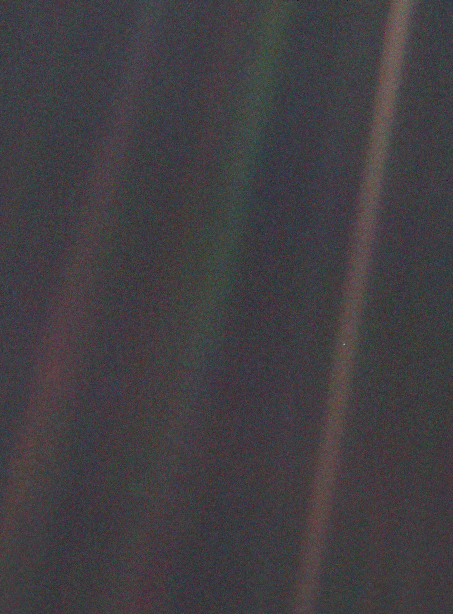Life As We Don't Know It: NASA's discovery of an 'exotic' DNA changes everythingAn article by Professor of Theoretical Physics Dr. Michio Kaku of the City University of New York in the Wall Street Journal.
When NASA announced last week that it would unveil a new discovery "which would impact the search for evidence of extraterrestrial life," it sparked a firestorm of speculation, with journalists and scientists clamoring to know whether NASA had finally discovered alien life in space. So great was the media stampede that even the White House and members of Congress were calling on NASA to clarify.
As expected, NASA scientists did find alien life—not in space, but in California, in the form of an exotic microbe with DNA never seen before that feeds on arsenic, a poison. After all the hoopla, science-fiction buffs considered this announcement to be a resounding dud. But to the scientific community, this was a spectacular result. It means that every biology textbook now has to be revised. Even the very definition of life may have to be changed.
All DNA on the earth is basically the same. By rearranging the components of DNA, you can convert the DNA of yeast into that of rabbits, elephants and even humans. But for the first time in history, scientists have found a new type of DNA that does not incorporate the usual six elements: carbon, hydrogen, oxygen, nitrogen, phosphorus and sulfur. These microbes have replaced the phosphorus atom in their DNA with arsenic, a sleight-of-hand once thought to be impossible.
These micro-organisms were found near Yosemite, in Lake Mono. The run-off from the Sierra Nevada mountains gives rise to unusually high concentrations of arsenic in the lake. Scientists first isolated these bacteria and then gradually replaced the phosphorus in their environment with arsenic. Most organisms die when exposed to these toxic levels. But some of these microbes had mutated so that they actually thrived on arsenic. Incredibly, scientists then found that the arsenic was being incorporated directly into their DNA.
The discovery raises the possibility that "shadow" life may exist on earth—and perhaps even on other planets. There might be other microbial life forms out there that have, over billions of years, been forced to modify basic DNA in order to survive in toxic environments. There will now be a surge of scientific interest in finding new variations in the DNA molecule, and also finding new organisms that exploit these mechanisms. Arsenic-based DNA are, one hopes, not the only exotic forms of DNA in the universe.
The real lesson here is that extreme forms of life can sometimes thrive in extreme environments that are usually too toxic or unsuitable for life. When searching the moons of Saturn or extra-solar planets hundreds of light years from earth, scientists cannot assume that life will mimic the chemistry found on earth. We have to be open-minded about what kinds of life can exist in the harshest of environments. (After all, our own DNA may have first originated at the bottom of the oceans, near volcano vents emitting a noxious brew of toxic chemicals.)
When the two Viking probes landed on Mars in 1976, soil samples of the Martian desert were analyzed for the presence of organic compounds, such as hydrocarbons. Disappointingly, none were found. But in light of this discovery, scientists should have broadened their definition of the chemicals of life. This new understanding of DNA may impact directly on NASA's current multibillion-dollar program to find life on Mars. This may also affect the current investigation of the moon of Saturn, Titan, which has a methane-like atmosphere, or the moon of Jupiter, Europa, which has a vast liquid ocean under its icy surface.
Eventually, after much more work, there is also the possibility of commercial and industrial applications. In the past, micro-organisms have played an important role in our understanding of fertilizers, energy production, oil processing, photosynthesis, organic chemistry, etc. Because entirely new domains of biochemistry may open up as new forms of DNA are discovered, this may have a direct impact on industrial and commercial processes in unforeseen ways.
As Shakespeare once said, "There are more things in heaven and earth, Horatio, than are dreamt of in your philosophy."



No comments:
Post a Comment